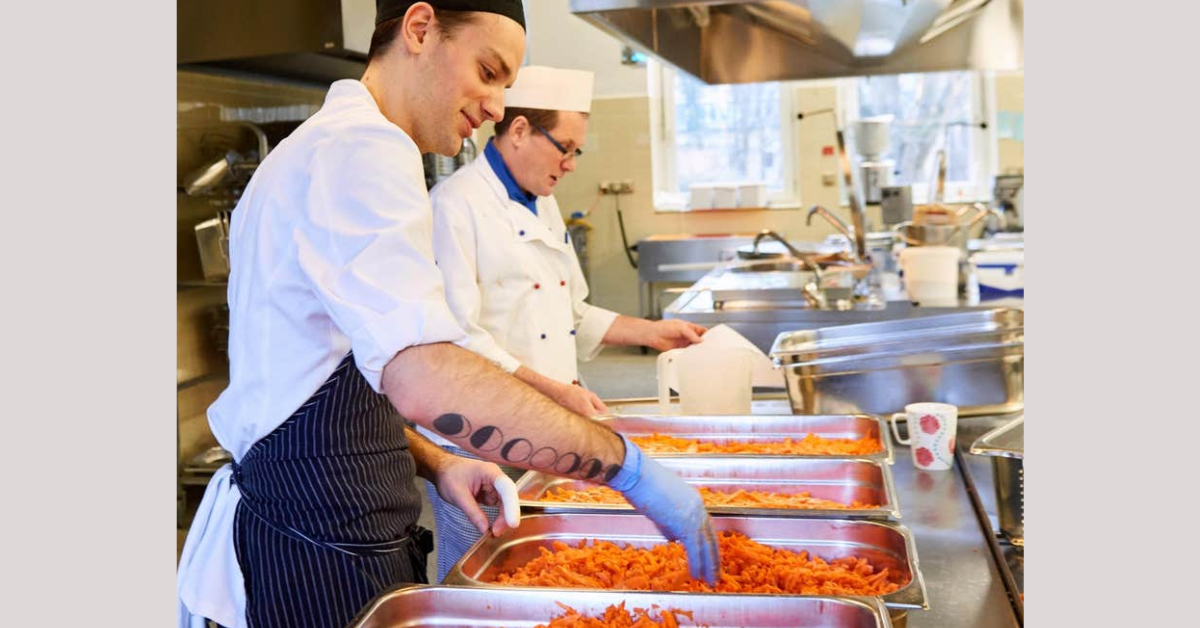Mastering Food Safety in Singapore: Why the Food Hygiene Officer Course Is Essential
In Singapore’s dynamic food and beverage (F&B) industry, cleanliness and safety are not just good practices—they are essential. As the demand for higher food safety standards increases, businesses are turning to qualified personnel to maintain hygiene excellence. This has made the Food Hygiene Officer Course one of the most sought-after certifications for professionals aiming to make a meaningful impact in the sector.
What Is a Food Hygiene Officer?
A Food Hygiene Officer (FHO) is responsible for overseeing hygiene practices, conducting inspections, and ensuring that food preparation and handling are carried out according to strict safety standards. In Singapore, this role is mandated for medium to large food establishments, such as catering services, food manufacturing facilities, and central kitchens.
The FHO acts as a key contact person between the establishment and the Singapore Food Agency (SFA). They ensure that hygiene guidelines are followed and that corrective actions are taken whenever lapses occur. Their role is both preventive and responsive, helping to minimize foodborne illness outbreaks and ensure consistent compliance.
The Need for the Food Hygiene Officer Course
With Singapore’s reputation as a food paradise, it is vital that the behind-the-scenes operations meet international hygiene standards. That’s where the Food Hygiene Officer Course comes into play. The course is designed to equip participants with the necessary knowledge and skills to handle the responsibilities of an FHO effectively.
The training goes beyond the basics of food handling. It provides deeper insights into critical areas such as:
-
Food safety management systems
-
Risk identification and hazard analysis
-
Cleaning and sanitizing protocols
-
Waste disposal techniques
-
Legal obligations under Singapore’s Environmental Public Health regulations
By completing this course, individuals not only meet the SFA’s requirements but also become valuable assets to any food business aiming for excellence.
Who Should Attend?
The Food Hygiene Officer Course is intended for a specific group of professionals within the food industry, including:
-
Hygiene or operations supervisors
-
Kitchen and catering managers
-
Food safety team leaders
-
Quality assurance officers
-
Any staff member designated to take up the FHO role in accordance with SFA requirements
Typically, candidates are expected to have prior training in basic food hygiene before enrolling. Some experience in food service or production environments is also helpful, as it provides practical context for the concepts covered.
Course Curriculum and Learning Outcomes
The Food Hygiene Officer Course is structured to offer both theoretical and practical training. Delivered by SFA-approved providers, the course often spans 2–3 days and includes modules such as:
-
Introduction to food hygiene principles
-
Common foodborne pathogens and illness prevention
-
Workplace cleanliness and sanitation
-
Pest management and waste control
-
Staff hygiene and training
-
Understanding legal requirements and compliance protocols
Through classroom sessions, group discussions, and case study analyses, participants develop problem-solving and leadership skills relevant to their roles. Most courses end with a written or practical assessment to evaluate the participant’s understanding of key concepts.
Upon passing, participants are awarded a certificate that qualifies them to serve as designated Food Hygiene Officers under SFA licensing requirements.
Benefits of Certification
1. Regulatory Compliance
Singapore’s strict food safety framework mandates that certain food establishments appoint at least one certified FHO. By completing the course, businesses ensure that they meet these regulations, thereby avoiding penalties and disruptions.
2. Better Risk Management
With proper training, FHOs can proactively identify and address potential hygiene risks before they escalate. This reduces the chances of foodborne illness outbreaks and customer complaints.
3. Enhanced Workplace Hygiene Culture
FHOs serve as role models and internal educators. Their presence encourages all staff members to adopt best hygiene practices, from food storage to hand washing, resulting in a cleaner and safer environment overall.
4. Career Development
For individuals in the F&B industry, earning the Food Hygiene Officer certification adds significant value to their professional portfolio. It opens the door to higher responsibilities and leadership roles in food safety and operations management.
What to Expect After the Course
Once certified, the FHO becomes an integral part of the establishment’s food safety strategy. Their responsibilities typically include:
-
Conducting regular hygiene audits
-
Coordinating pest control activities
-
Reporting to management and external inspectors
-
Leading training sessions for food handlers
-
Maintaining hygiene records and checklists
Many FHOs also participate in continuous learning to stay current with changes in food safety legislation, emerging risks, and technological advancements in sanitation.
Choosing the Right Training Provider
Not all training providers offer the same level of depth and expertise. In Singapore, it’s important to select a provider that is recognized by the Singapore Food Agency. A reputable course provider will have qualified instructors with industry experience, up-to-date materials, and a clear alignment with SFA standards.
Look for programs that offer interactive elements, post-course support, and real-world case examples. These features enhance learning and make the training more applicable to daily operations.
Supporting the Nation’s Food Standards
Singapore is known for its food heritage and high safety standards. Behind every successful restaurant, food court, or factory is a team committed to maintaining cleanliness and order. The Food Hygiene Officer Course is a crucial part of this ecosystem. It not only empowers individuals but also supports national food safety goals.
Consumers today are more informed than ever before. A single hygiene lapse can lead to social media backlash, loss of revenue, and damage to brand reputation. Having a certified FHO in place serves as both a safeguard and a statement of commitment to customer well-being.
Final Thoughts
Food safety is a collective responsibility, and the Food Hygiene Officer plays a central role in upholding that responsibility. Through formal training, on-the-job leadership, and continuous monitoring, FHOs ensure that food establishments in Singapore maintain world-class standards.
If you’re a food business owner or a professional in the F&B industry, enrolling in the Food Hygiene Officer Course is a smart and necessary step toward operational excellence and public trust. As Singapore continues to grow as a global culinary destination, the demand for skilled food hygiene professionals will only increase.
Whether you aim to advance your career or ensure compliance for your business, investing in this course is a move toward long-term success and safety.






